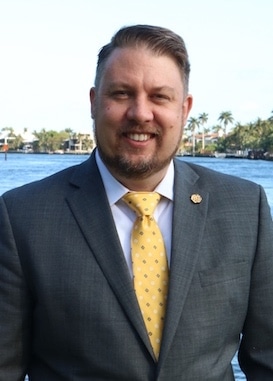Introduction:
by Christopher Benek
Part of the benefit of being in Pittsburgh Theological Seminary’s Doctor of Ministry Program (in Science and Theology) is the privilege of interacting with numerous very intelligent people with some fairly unique perspectives. One of my peers in the program is the Rev. Mouris Yousef. an Egyptian pastor serving an Arabic speaking congregation in New Jersey. Mouris’ unique cross-cultural comprehensions give him particular insights into Scripture that most of us wouldn’t typically be fortunate enough to observe on our own. That being the case, I asked Mouris if he would contribute to my blog and he agreed by providing a segment of a recent sermon of his entitled: Moses, Pharaoh and the Kingdom of God. This work was originally presented in Arabic but Mouris was kind enough to provide us with an English translation. I want to also indicate that I think that it is notable that Mouris was willing to provide this post in a time when he was under significant duress, not knowing whether or not his extended family in Egypt were safe in the midst of the current protests happening in Cairo. Many of us are not aware of the fact that times like these, while providing an opportunity for significant democratic reform, also come with added dangers for Christians in the region who face intensified persecution and prejudices from many intolerant individuals wishing them harm. I am thus very appreciative of/for Mouris’ contribution and especially for his friendship and I’d ask that you join me in praying for the continuing safety of his family and friends in Egypt.
Moses, Pharaoh and the Kingdom of God: Exodus 3:1-10; 4:1-5
by Rev. Mouris A. Yousef

Today… what I will do… is to focus on Moses’ life in three particular areas. Three snap shots from Moses’ life that recently have touched my life and at the same time have brought me hope as I think about my life as a child of God and as I think about the life and mission of the Church universal today. First, the place or where did God meet Moses? Second, the time or when did God meet him? And finally, the method ~ the way ~ or how did God use Moses?
First: The Place (or What I’ve Called the Desert Experience)
In Deut. 34:7, the Word of God tells us that, “Moses was a hundred and twenty years old when he died.” Moses lived the first forty years of his life in Egypt, the second forty years in the desert, and the last forty years of his life leading his people out of the land of slavery into the Promised Land. He first encountered God at the end of the second stage of his life, in the desert. Isn’t that amazing?
Exodus 3:1-2 states that,
“Now Moses was tending the flock of Jethro his father-in-law, the Priest of Midian, and he led the flock into the far side of the desert and came to Horeb, the mountain of God. There the Angel of the Lord appeared to him in flames of fire from within a bush.”
Moses did not see God while a Prince in the land of Egypt enjoying the comfort life of Pharaoh’s Palace, but rather he saw God in the midst of the desert.
Why the desert? Why the wilderness? Why the Valley of Baca (Ps. 84:6) ~ the valley of weeping? Why difficult times? Desert and wilderness are not our desirable places. No one likes to be there. As a matter of fact, we think about the desert as the place where we are left, or taken away from God. The place where is no hope or comfort.
A close and a careful reading to our text today, however, will show us something different. In the Hebrew Scripture, the word “desert” in Hebrew is “Medbar”. Medbar has two meanings: (1) It first means “the pasture ground.” Do you believe that God is able to bring you into a pasture ground even if you’re in the heart of the desert, in the heart of your difficult times? God brings an abundant and a true richness at the very place where we think that we will need or starve. God will lead you. God is there for you!
(2) In Hebrew the word “Dabar” comes from the same root of Medbar “desert”. Dabar means “to express thoughts.” In the desert God not only takes care of us, but also talks to us. God expresses His thoughts to us in the desert. This is very clear from Exodus 3. God has brought Moses to this point of his life to talk to him. When life gets busy, when we caught in our business or life demands 24/7, when we worry about what shall we eat?, what shall we drink?, what shall we wear?, then the Lord says, my son, my daughter, calm down …I want to talk to you … I want you feel my presence in your life …I want to express my thoughts to your life, your family, your business, you ministry.
Listen to what the Bible says about the desert experience in Deut. 32:10 & 12:
“In a desert land He found him, in a barren and howling waste. He shielded him and cared for him; he guarded him as the apple of his eye. The Lord alone led him; no foreign god was with him.”
As you go through the desert experience, you have two options: either to reject it with bitterness and unthankful heart or to accept it with faith realizing that at this very place the Lord shields you, cares for you, guards you, and leads you.
Second: The time: When did God meet Moses? (It’s Never too Late)
God’s timing is another issue that I want to meditate on. When Moses got God’s call to lead the Israelites in the Exodus journey, he was 80 years old. From Moses’ point of view, as all of us do in many times, this call is late at least 40 years. Simply because when Moses was in Egypt, he had the power and the authority … the Prince of Egypt … the highly educated young man full of hopes and dreams for the future. The Book of Acts puts it this way in 7:22 “Moses was educated in all the wisdom of the Egyptians and was powerful in speech and action.” All this is no longer exist. It is too late Lord!!! I am an old man ~80 years old now … has no power or authority at all … a poor Sheppard like many poor Sheppards in this ugly desert. I am not the right person Lord. I am not the best choice!
Why now? Why today? It is God’s timing. I love D. L. Moody analysis of Moses’ life. He says, the first 40 years of Moses life “Moses in Egypt”, Moses thought of himself as full power ~ the son of Pharaoh’s daughter. The second 40 years of Moses life “Moses in the desert in Midian”, Moses came to realize that he is nothing. The third 40 years of his life “Moses leading the people”, he came to know that God is all power and He (God) is able to do miracles through those who are nothing.
Friends, it is never too late to allow God to use us effectively. It is never too late to invite God’s hand to perform miracles through your life. Aged, powerless, feel you’re nothing, no hope, no future? Remember, God is all power and He is able to do marvelous things through those who are nothing.
Third: The Method (How did God use Moses?)
In Exodus 4:2, God asks Moses a simple question “Then the Lord said to him, “What is that in your hand?” “A staff,” he replied.” Note that we usually look at the things that are NOT in our hands; the things that we do not have. We think about if I have more money, better job, more social life, better family, more spiritual gifts. Again, the Lord asks us, “What is that in your hand?”
Give whatever in your hand to God. When you give it to God, it is no longer yours, it’s God’s. From this moment on, this staff was not Moses’, but God’s. In Exodus 4:20 “Then Moses took his wife and sons, put them on a donkey and started back to Egypt. And he took the staff of God in his hand.” From this moment on, God used this staff to perform miracles and great things.
It is never depend on our abilities, or talents, or education, it depends on how much we allow God to use what’s in our hands to become His and then the unbelievable things start to take place in our lives.
Friends: Like Moses, you may have been through a desert experience, would you trust the Lord that He feeds your faith, cares for your spirit, and directs your steps? It is never too late to invite the Almighty God to rearrange the priorities of your life. It is time to use whatever gift we have received to serve others and faithfully administering God’s grace in its various forms. In the Name of the Father, the Son, and the Holy Spirit. AMEN!





























